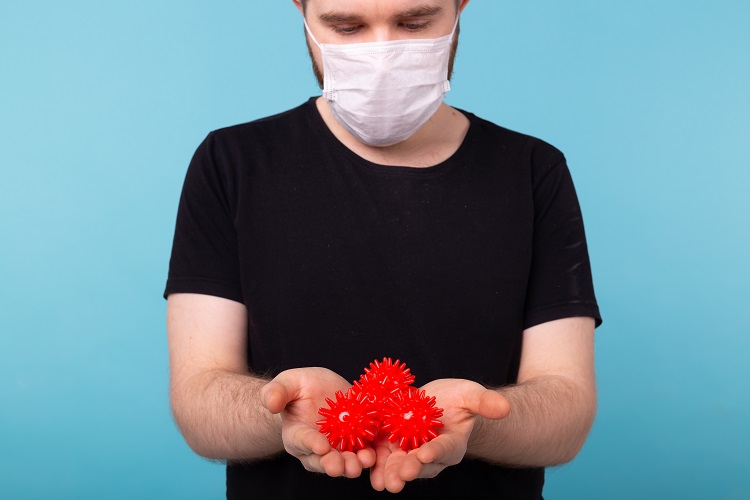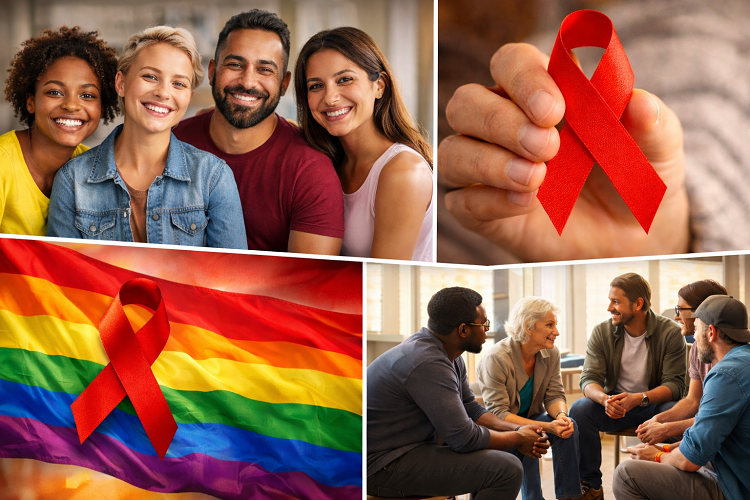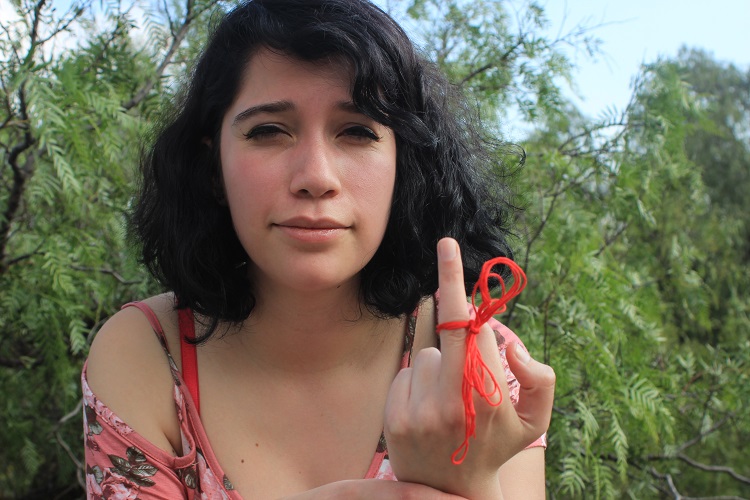Living With HIV can be an emotional journey filled with both challenges and triumphs. While medical advancements have made it easier than ever to manage HIV, the emotional and psychological battles — particularly shame and low self-esteem — often persist. Shame can affect relationships, self-worth, and even physical health. But with the right mindset and support, it is entirely possible to overcome this emotional weight and build a strong, confident sense of self.
Whether you’ve just been diagnosed or have been living with HIV for years, these insights will help you embrace your worth, feel empowered, and live a fulfilling life without stigma or fear.
-
Understanding Shame and Self-Esteem in HIV
The Emotional Impact of Diagnosis
An HIV diagnosis can trigger a range of powerful emotions — shock, denial, anger, sadness, and above all, shame. Many people associate HIV with societal judgments and stereotypes, which can lead to deep internalized stigma. This emotional burden can make you feel unworthy of love, success, or happiness.
However, it’s essential to recognize that shame is not an inherent part of HIV — it’s a reaction shaped by misinformation, social prejudice, and stigma. Understanding where that shame comes from is the first step toward healing. By naming it, you begin to reclaim control over how you view yourself.
How Shame Affects Self-Esteem
Shame often tells people with HIV that they’re “different” or “less than,” which can seriously damage self-esteem. It can lead to isolation, anxiety, and depression, making it harder to maintain relationships or pursue personal goals. The truth is, HIV doesn’t define your value — your compassion, resilience, and authenticity do.
Once you begin to see that your worth isn’t tied to your health condition, you can start to rebuild confidence and restore a positive sense of self.
-
Breaking Free from Stigma and Judgment
Recognizing External vs. Internalized Stigma
There are two main types of stigma that affect people living with HIV: external stigma and internalized stigma. External stigma comes from the judgments and ignorance of others, while internalized stigma is when those external attitudes start shaping how you see yourself.
To overcome shame, it’s crucial to separate who you are from what society says about HIV. People’s opinions are shaped by outdated beliefs and misinformation — not by your truth. Once you start challenging those ideas, the shame begins to lose its power.
Steps to Combat Stigma
- Educate Yourself: Learn about HIV transmission, treatment, and prevention. Knowledge helps you feel more in control and dispels myths that fuel shame.
- Correct Misinformation: When you feel ready, gently educate others about HIV. Sharing facts breaks stigma and empowers you to take charge of your narrative.
- Surround Yourself with Positivity: Engage with people who uplift and support you. Positive relationships are essential for building self-esteem and combating shame.
By understanding that stigma reflects societal ignorance — not your personal value — you reclaim your power and start to see yourself through a lens of strength and dignity.
-
The Role of Self-Acceptance in Healing
Embracing Yourself Without Conditions
Self-acceptance means loving yourself fully, including the parts of you that society might label or misunderstand. Living with HIV doesn’t make you less human; it makes you more aware of your resilience and courage.
Try daily affirmations or journaling to remind yourself that you are worthy, lovable, and whole — just as you are. Instead of focusing on what’s “wrong,” focus on everything that’s right about you: your compassion, humor, intelligence, and heart.
Rewriting Your Personal Narrative
It’s easy to let an HIV diagnosis become a defining chapter in your life, but you get to decide how that story is told. Your life isn’t “over” — it’s evolving. You can still pursue dreams, build families, travel, and fall in love.
Reclaim your narrative by seeing HIV as one aspect of your journey, not your entire identity. When you own your story, shame loses its grip, and your confidence begins to flourish.
-
Finding Support: You’re Not Alone
Building a Support Network
Support is a cornerstone of self-esteem recovery. Being part of a compassionate community — whether online or in person — helps you feel seen, understood, and valued. HIV support groups, therapy, and online platforms like PositiveSingles, MPWH, or HIV Dating Apps can provide spaces where you can share your story without judgment.
When you surround yourself with people who “get it,” shame fades, and acceptance grows. Connection validates your experience and reminds you that you are not alone in this journey.
Therapy and Counseling
Professional counseling is another powerful way to combat shame and boost self-esteem. Therapists who specialize in HIV care or trauma recovery can guide you through emotional healing. They help you challenge negative thought patterns, process feelings of guilt or fear, and develop coping strategies to improve your mental well-being.
Therapy isn’t just for those who are struggling — it’s an investment in your emotional health, self-confidence, and future happiness.
-
Boosting Confidence Through Self-Care
Prioritizing Your Health and Body
Taking care of your body is a powerful way to show yourself love and respect. Regular exercise, a balanced diet, and consistent medication adherence not only improve physical health but also boost mental clarity and confidence.
When you feel good physically, it translates into how you carry yourself. You’ll notice a shift in how you see your reflection — from shame to pride. Self-care is not indulgence; it’s empowerment.
Nurturing Your Mind and Spirit
Beyond physical health, mental and spiritual well-being are equally important. Practice mindfulness, meditation, or prayer to reconnect with inner peace. Creative outlets like painting, writing, or music can help you express emotions and release pain in healthy ways.
Remember: taking time for yourself doesn’t mean you’re selfish — it means you value yourself enough to prioritize your happiness.
-
Building Healthy Relationships with HIV
Love Without Fear or Guilt
Dating and intimacy can feel intimidating when living with HIV, but everyone deserves love, touch, and connection. Open communication is key. When the time feels right, talk to potential partners about your status calmly and confidently. You’ll be surprised how many people respond with understanding and compassion.
Many relationships thrive with honesty and mutual respect. The key is to let go of the fear that your status makes you unlovable — it doesn’t. You are worthy of love, loyalty, and joy.
Overcoming Rejection and Building Resilience
Rejection is a part of life for everyone, not just people with HIV. When it happens, remind yourself that rejection doesn’t define your worth. The right person will see your heart, not your diagnosis.
Learn to view rejection as redirection — a step closer to people who will value you for who you truly are. Each time you rise from a setback, your self-esteem grows stronger and your shame weakens.
-
Empowerment Through Knowledge and Advocacy
Becoming Your Own Advocate
One of the most empowering ways to boost self-esteem is to become your own advocate. Learn about your treatment options, ask questions at your clinic, and stay informed about new research. When you take charge of your health, you shift from a place of fear to one of empowerment.
Being proactive reinforces self-worth — it’s a daily reminder that your voice matters and your life has value.
Helping Others and Raising Awareness
Many people find healing by helping others who share similar experiences. Volunteer at HIV awareness programs, participate in online forums, or mentor someone newly diagnosed. Turning your pain into purpose gives meaning to your journey and reinforces your strength.
When you inspire others to overcome shame, you multiply your self-confidence and contribute to a world that’s more understanding and compassionate toward people living with HIV.
-
The Power of Positive Thinking and Gratitude
Shifting from Self-Criticism to Self-Love
Negative thoughts can drain your confidence, but positive affirmations can rebuild it. Replace “I’m not good enough” with “I am worthy of love and respect.” Over time, this mindset rewires how you see yourself.
You can also practice gratitude journaling — writing down three things you’re thankful for every day. Gratitude shifts your focus from what’s lacking to what’s thriving, helping you feel more grounded and optimistic.
Celebrating Small Victories
Every day you take your medication, share your truth, or choose kindness toward yourself is a victory. Celebrate those wins. Recognizing your progress boosts self-esteem and reminds you how far you’ve come.
Even on difficult days, remember that you are a survivor — strong, brave, and deserving of happiness.
-
Overcoming Shame in Cultural and Social Contexts
Understanding Cultural Barriers
In some communities, discussing HIV remains taboo, which can deepen feelings of shame and isolation. Cultural expectations or religious beliefs may make it harder to open up or support.
It’s important to remember that your health and happiness matter more than outdated traditions or social pressures. Your life is your own — you deserve to live authentically, without hiding or apologizing for who you are.
Creating Change Through Conversation
The more people talk about HIV, the more stigma fades. Start conversations — with friends, family, or online communities — to promote awareness and acceptance. Every open dialogue helps break stereotypes and makes the world safer for others to share their stories.
Your courage to speak up today can inspire someone else to help tomorrow.
-
Moving Forward: Living a Life of Confidence and Joy
Redefining Your Identity Beyond HIV
You are not your diagnosis. You are a whole, multidimensional person with dreams, passions, and potential. When you let go of shame and embrace your humanity, you open yourself up to endless possibilities.
Your worth isn’t measured by what society says, but by how you live, love, and contribute to the world. Confidence isn’t about being perfect — it’s about embracing your imperfections and still choosing to shine.
Creating a Future Filled with Hope
Medical science has come a long way — people with HIV now live long, healthy, and fulfilling lives. You have every reason to dream big, plan your future, and live it with confidence. Surround yourself with love, support when needed, and never forget: your story matters.
You are not alone. You are strong, resilient, and enough — just as you are.
Final Thoughts
Overcoming shame and Building Self-Esteem With HIV is not an overnight process — it’s a journey of compassion, courage, and self-love. Each small step you take, each honest conversation you have, and each moment you choose to love yourself brings you closer to freedom from stigma and fear.
Your life is precious, your story is powerful, and your worth is beyond measure. By humanizing your experience and embracing who you are, you can live with confidence, joy, and unwavering self-respect.




